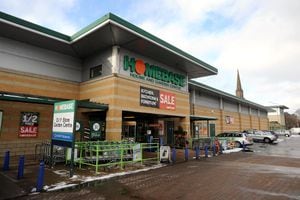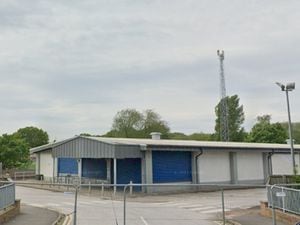Ailing Homebase is sold for just £1 to turnaround group
Homebase has been sold by its owner Wesfarmers for just a £1 as the Australian group took a £230 million loss on its two-year ownership of the DIY chain.

Homebase has been sold to retail restructuring firm Hilco, closing the chapter on a disastrous foray into British retail.
The deal, for a nominal sum thought to be £1, will see Wesfarmers book a loss of up to £230 million and see the firm exit the UK after picking up the DIY chain for £340 million in 2016.
It is unclear at this stage if Hilco, which bills itself as a retail restructuring specialist and also owns HMV, will embark on a store closure programme. Wesfarmers had already launched a programme of 40 closures, including the branch at Whitchurch in Shropshire which is due to close its doors on July 4.
Homebase also has 250 UK stores, including branches in Wolverhampton, Cannock, Telford, Market Drayton, Wrexham and Kidderminster, and employs around 12,000 people.
Under the terms of the deal, Hilco will acquire all Homebase assets including the brand, its store network, freehold property, property leases and stock.
A total of 24 stores that were trading as Bunnings, Wesfarmers' brand, will convert back to the Homebase fascia.
Wesfarmers managing director Rob Scott said: "A divestment under the agreed terms is in the best interests of Wesfarmers' shareholders and will support the ongoing reset and repositioning of the Homebase business.
"While the review confirmed the business is capable of returning to profitability over time, further capital investment is necessary to support the turnaround.
"The investment has been disappointing, with the problems arising from poor execution post-acquisition being compounded by a deterioration in the macro environment and retail sector in the UK."
Wesfarmers will also participate in a "value share mechanism" whereby it is entitled to 20 per cent of any future sale of the business.
The deal sells the DIY chain to Hilco and to a new Homebase management team led by Damian McGloughlin, which has overseen an improvement in its operating performance in recent months.
Chief executive Mr McGloughlin said: “We are very pleased to have reached an agreement with Hilco and this marks an exciting new chapter for Homebase. With Hilco’s support we have the commitment of an experienced partner, substantial additional capital, stability for the business and the opportunity to reinvigorate a brand that has been a mainstay of UK retail for over 40 years."
He added: "I would like to thank our team members for their commitment during what has been a testing time for the business. The momentum we have seen in the business over recent peak trading periods and their dedicated support to our customers gives us a strong platform from which to build.”
Retail experts have criticised Wesfarmers for failing to judge the UK market correctly after buying Homebase from Home Retail Group two years ago.
Richard Lim, of Retail Economics, said: "The acquisition of Homebase has been an unbelievable disaster for Wesfarmers.
"Their attempts to disrupt the UK DIY market have failed after a series of woeful management decisions, clumsy execution and a misguided perception of the UK market.
"There's no doubt that the timing has been ill-fated as the sector faces incredibly tough headwinds.
"Against this backdrop, the business is bleeding cash and the owners have decided enough is enough. Unfortunately, the restructuring will almost inevitably lead to store closures and more job losses on the high street."
Homebase boss Damian McGloughlin said the agreement with Hilco "marks an exciting new chapter" for the retailer.
Disaster
John Colley, from Warwick Business School, said: "This is one of the great all time disasters in the M&A world and it is against some very stiff competition. Both the strategy and the execution were disasters.
"Entering a shrinking market through a weak third position was always going to be problematic and increasingly UK households now get someone else to do their DIY, who buy materials through traditional builders merchants.
"Assuming what works in the Australian DIY market will work in the UK with its different climate was a great leap in faith. Wesfarmers underestimated the costs of conversion to the Bunnings format, which does not seem to work.
"Then they fired the top 160 managers who knew anything about the UK market and replaced them with their own limited knowledge. Finally they delisted the top selling lines.
"Ultimately they have found someone to buy it as there are over £1Bn of future lease liabilities. One suspects that their various costs and risk underwriting will cost them far more than the £340M they paid for it plus the additional £200M of provision on top of the write-off on the purchase price. One suspects the Bunnings CEO's position may be under pressure."





